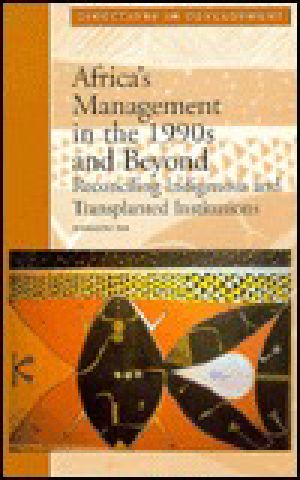Africa's Management in the 1990s and Beyond · Reconciling Indigenous and Transplanted Institutions

- Authors
- Dia, Mamadou
- Publisher
- World Bank Publications
- ISBN
- 9780821334317
- Date
- 1996-01-01T00:00:00+00:00
- Size
- 0.88 MB
- Lang
- en
Contrary to traditional Afro-pessimism, the Africa ' s Management in the 1990s (AM90s) research program illustrates that Africa possesses a substantial reservoir of capacity endowments and best practices on which to build in order to improve the institutional and economic performance of the continent. While not denying the existence and extent of the economic crisis, the AM90s research illustrates that institutional reconciliation will be a key to the institutional and economic development of Africa. More important, the proposed solutions are mostly homegrown and are therefore likely to strengthen self-sufficiency and reduce dependency on foreign assistance. The overarching theme of the research is that the institutional crisis affecting economic management in Africa is a crisis of structural disconnect between formal institutions transplanted from outside and indigenous institutions born of traditional African culture. Building on the findings and recommendations of the new school of institutional economics, the AM90s research posits that both formal and informal institutions are here to stay and are needed in Africa, but in a more flexible form. It is through adaptation that formal and informal institutions can converge and build on each other ' s strength and that transaction costs can be reduced and institutional performance maximized. This process for building convergence is at the heart of institutional reconciliation paradigm proposed in this report.